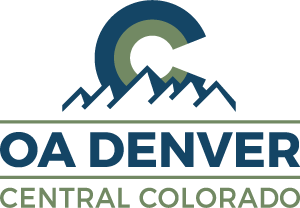Disruptions on Phone Meetings
From: Teresa Kopel, Virtual Services Trustee
Date: Wednesday, July 28, 2010
To: OA Meetings
Subject: Dealing with Disruptions on Phone Meetings
 Greetings to all of the phone meetings! I have gotten a number of calls and emails from members who have attended phone meetings that were very unpleasant. Some of the complaints I have heard are that people have shouted obscenities at other members during the meeting or played loud music so that someone speaking could not be heard. I have heard accusations that people were muted, and thought it was because they said something that they felt the moderator didn’t like. I have heard of moderators who have been repeatedly knocked off of the meeting, who then had to dial back in to resume moderating the meeting. In extreme cases, everyone on the meeting has been blocked from sharing. In turn, people who are understandably upset have been trying to figure out who is doing this, and what can be done to stop it.
Greetings to all of the phone meetings! I have gotten a number of calls and emails from members who have attended phone meetings that were very unpleasant. Some of the complaints I have heard are that people have shouted obscenities at other members during the meeting or played loud music so that someone speaking could not be heard. I have heard accusations that people were muted, and thought it was because they said something that they felt the moderator didn’t like. I have heard of moderators who have been repeatedly knocked off of the meeting, who then had to dial back in to resume moderating the meeting. In extreme cases, everyone on the meeting has been blocked from sharing. In turn, people who are understandably upset have been trying to figure out who is doing this, and what can be done to stop it.
The first thing I want to do is caution us from leveling blame at other, unknown members of OA. [CCI Note: While there is concern that ‘hackers’ are knocking people off the phone lines there are any number of ‘technical’ reasons that this could be happening and Teresa is working with our service providers to address those issues. Poor cell phone reception and the increasing use of VoIP – internet-based calling – can also contribute]. We always need to remember our first Tradition: “Our common welfare should come first; personal recovery depends upon OA unity.” If it is indeed the work of another OA member, remember that we are all sick people in varying stages of recovery. Hopefully as we recover and practice the principles in all of our affairs, we will not act in such a way. In the meantime, if I am disturbed by what happens during a meeting, the Program gives me very clear guidance on how to work the Steps around our resentment. To quote the Big Book: “We realized that the people who wronged us were perhaps spiritually sick. Though we did not like their symptoms and the way these disturbed us, they, like ourselves, were sick too. We asked God to help us show them the same tolerance, pity, and patience we would cheerfully grant a sick friend…. We avoid retaliation or argument. We wouldn’t treat sick people that way.”
People have also been expressing a lot of fear about the situation.” What if people turn to compulsive eating to cope with the unpleasant feelings they have after such meetings?” “If a suffering newcomer came to one of these meetings, hoping to find a solution to the cunning, baffling and deadly disease of compulsive eating, would they ever come back? Or would this disease claim another life, a life that could have been saved if they had found a strong and healthy meeting that practiced the principles of Overeaters Anonymous?” “I need OA to recover. What if this destroys OA?” Just as we are given clear guidance on how to deal with resentment, so too our fear. Again, from the Big Book: “We reviewed our fears thoroughly. … We asked ourselves why we had them. Wasn’t it because self-reliance failed us? … we are now on a different basis; the basis of trusting and relying upon God. We trust infinite God rather than our finite selves.” I believe absolutely that each of us, our groups, and our OA fellowship are in the care of a loving Higher Power, and that Power is far stronger than any individual trying to disrupt our meetings. No one person can bring down this wonderful Program. Indeed, I am convinced that these growing pains, as we navigate the exciting new world of virtual meetings, will only make us that much stronger in the end.
And virtual meetings are not the only meetings with disruptive members. There sometimes is a different level of civility in the virtual world relative to the “real” one. I certainly don’t intend to imply that all virtual meetings are wild, nor that all f2f meetings are calm and serene. But people sometimes act in ways that they never would if they had to look someone in the eye while they did so. I often find it helpful to think of the corollary of what it would be like in a f2f meeting. If someone said something you disagreed with in a f2f meeting, one would never walk over to that person and clap a hand over their mouth to prevent them from sharing – but muting someone does the same thing. One would never forcibly take the leader of the meeting outside the building, lock the door, and make them unlock it to come back in and resume leading the meeting. But that is exactly what has happened when a moderator is bumped off the line and has to call back in.
There is a place in a meeting to “escort” a disruptive member from the meeting. On the phone, that may be by muting the individual. But that is an action that must be undertaken with great discretion. One advantage of virtual meetings is that one is in no actual physical danger from a disturbed or disruptive member, nor can someone who has a grudge against you stalk you or follow you home from the meeting. But emotional security and safety are very important to our recovery in the meetings rooms of OA. We recover together, and the OA meetings need to be a place where we can share freely about our disease and our recovery from it.
If anyone reading this has been someone who disrupted a meeting, I hope you will reconsider your actions and make amends. If a particular meeting disturbs you, find another meeting that is more to your taste – with 130 phone meetings each week, 164 online meetings, and over 6000 face-to-face meetings, there should be a meeting to suit anyone. Our meetings range from very structured, scripted meetings with a lot of rules, to very open meetings with a lot of quiet time during the meeting. Every meeting may follow a different format, and Tradition Four allows each group autonomy except in matters affecting other groups or OA as a whole. No group is essentially good or bad, but the members who attend the meeting make it what it is. We may not like every meeting we attend, but we owe it to those people who DO like that type of meeting to allow them to have a peaceful meeting without disruptions, so we all can find the recovery we need. We also may not care for everyone who attends a particular meeting, but Tradition Twelve says we put principles before personalities, and we need to treat everyone with the same respect and consideration with which we would like to be treated.
So how do we deal with disruptive members? Although rare, it has happened often enough that we have developed wonderful resources to help us deal with the problem. First, of course, we have the Twelve Traditions, which should guide all recovering OA members in their dealings with other OA members, as well as those outside the rooms. OA also has some very good guidelines downloadable from the website at http://www.oa.org/pdfs/disruptive_behavior.pdf. We can directly confront the individual if indeed we know whom it is, in a loving and kind way, keeping the focus on the principles of the Program. I find it very important to never have such a conversation when I am excited or agitated. If I am, I need to work my Program until I can calm down. There are things that moderators can do technically to help reduce the problems. Matters may also be taken to a service body beyond the group level. If you call the World Service Office, they will refer any concerns about virtual meetings to the current Virtual Services Trustee. I am serving in that capacity through WSBC 2011, and you may contact me directly.
Most important of all, don’t allow this to disturb your serenity, don’t eat compulsively to deal with any feelings about this issue, and keep coming back!
Yours in service,
Teresa Kopel
OA Region IV, Virtual Services Trustee
r4trustee@earthlink.net
319-321-3429
